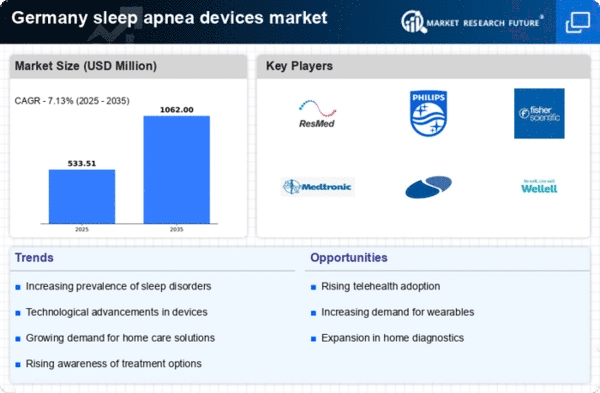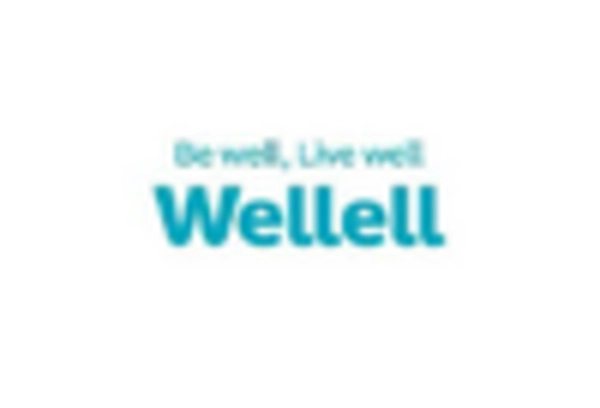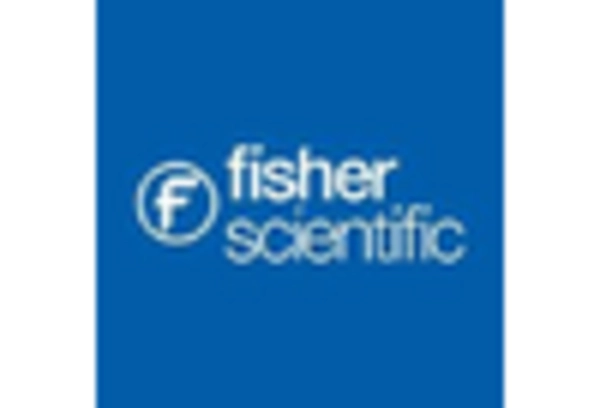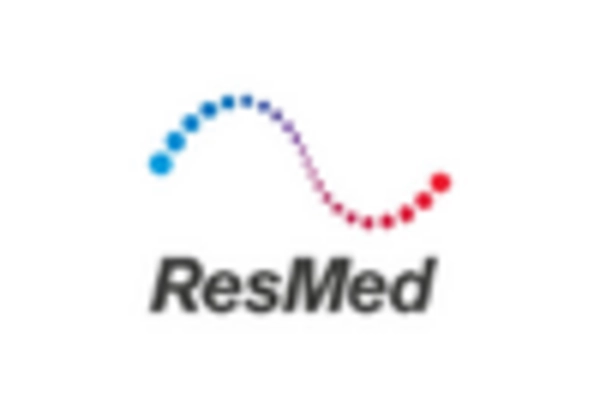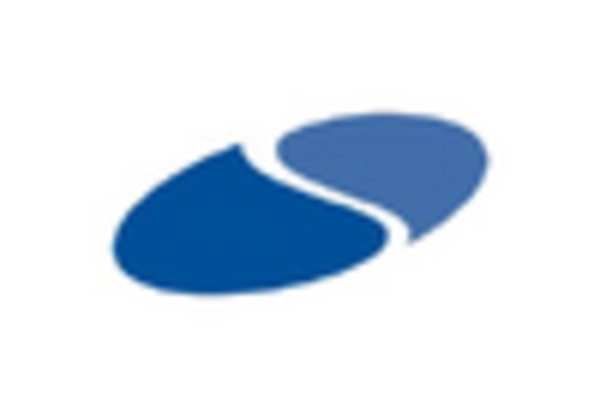Increased Healthcare Expenditure
Germany's commitment to healthcare expenditure significantly influences the sleep apnea-devices market. The country allocates a substantial portion of its GDP to healthcare, which facilitates access to advanced medical technologies and treatments. In 2025, healthcare spending is projected to reach approximately €500 billion, reflecting a growing investment in health services. This financial support enables healthcare providers to invest in the latest sleep apnea devices, ensuring that patients receive effective treatment options. Additionally, the reimbursement policies in Germany are favorable for sleep apnea treatments, further encouraging the adoption of these devices. As healthcare expenditure continues to rise, the market for sleep apnea devices is likely to expand, driven by increased availability and accessibility of innovative solutions.
Supportive Regulatory Environment
The regulatory environment in Germany is conducive to the growth of the sleep apnea-devices market. The government has established clear guidelines and standards for the approval and distribution of medical devices, ensuring that patients have access to safe and effective treatment options. Regulatory bodies actively support innovation by streamlining the approval process for new technologies, which encourages manufacturers to invest in research and development. This supportive framework not only fosters competition among device manufacturers but also enhances the overall quality of products available in the market. As regulations evolve to accommodate new advancements, the sleep apnea-devices market is likely to benefit from increased product diversity and improved patient outcomes.
Rising Prevalence of Sleep Disorders
The increasing prevalence of sleep disorders in Germany is a critical driver for the sleep apnea-devices market. Recent studies indicate that approximately 4 million individuals in Germany suffer from sleep apnea, a condition that often goes undiagnosed. This growing patient population necessitates the development and distribution of effective treatment devices. As awareness of sleep disorders rises, healthcare providers are more likely to recommend diagnostic and therapeutic devices, thereby expanding the market. Furthermore, the aging population, which is more susceptible to sleep apnea, contributes to this trend. The demand for innovative solutions to manage sleep apnea effectively is likely to drive market growth, as patients seek improved quality of life through better sleep management solutions.
Growing Focus on Preventive Healthcare
The shift towards preventive healthcare in Germany is emerging as a significant driver for the sleep apnea-devices market. With an increasing emphasis on early diagnosis and management of health conditions, healthcare professionals are prioritizing the identification of sleep apnea as a critical health issue. This proactive approach encourages individuals to seek diagnostic testing and treatment options sooner, leading to higher demand for sleep apnea devices. Public health campaigns aimed at educating the population about the risks associated with untreated sleep apnea are also contributing to this trend. As awareness grows, more patients are likely to pursue treatment, thereby expanding the market. The focus on preventive healthcare aligns with broader health initiatives in Germany, promoting better overall health outcomes.
Technological Innovations in Device Design
Technological innovations play a pivotal role in shaping the sleep apnea-devices market. The introduction of advanced features such as automatic pressure adjustments, integrated monitoring systems, and mobile app connectivity enhances user experience and compliance. In Germany, manufacturers are increasingly focusing on developing lightweight, quieter, and more comfortable devices, which are essential for patient adherence. The market is witnessing a shift towards more user-friendly designs, including portable and wearable devices that cater to the needs of a tech-savvy population. This trend not only improves patient outcomes but also encourages more individuals to seek treatment, thereby expanding the market. As technology continues to evolve, the potential for new product offerings remains high, indicating a robust future for the sleep apnea-devices market.


